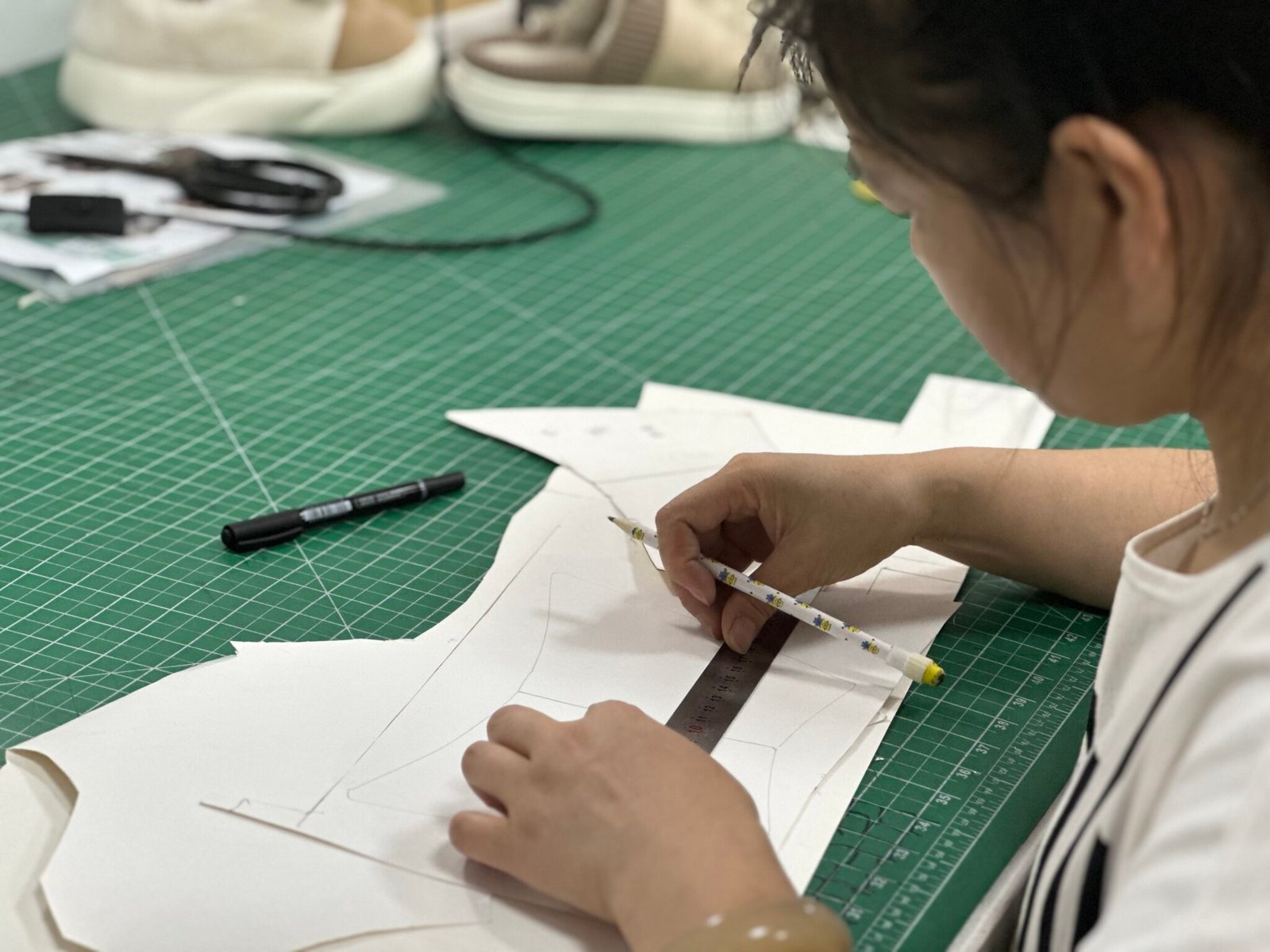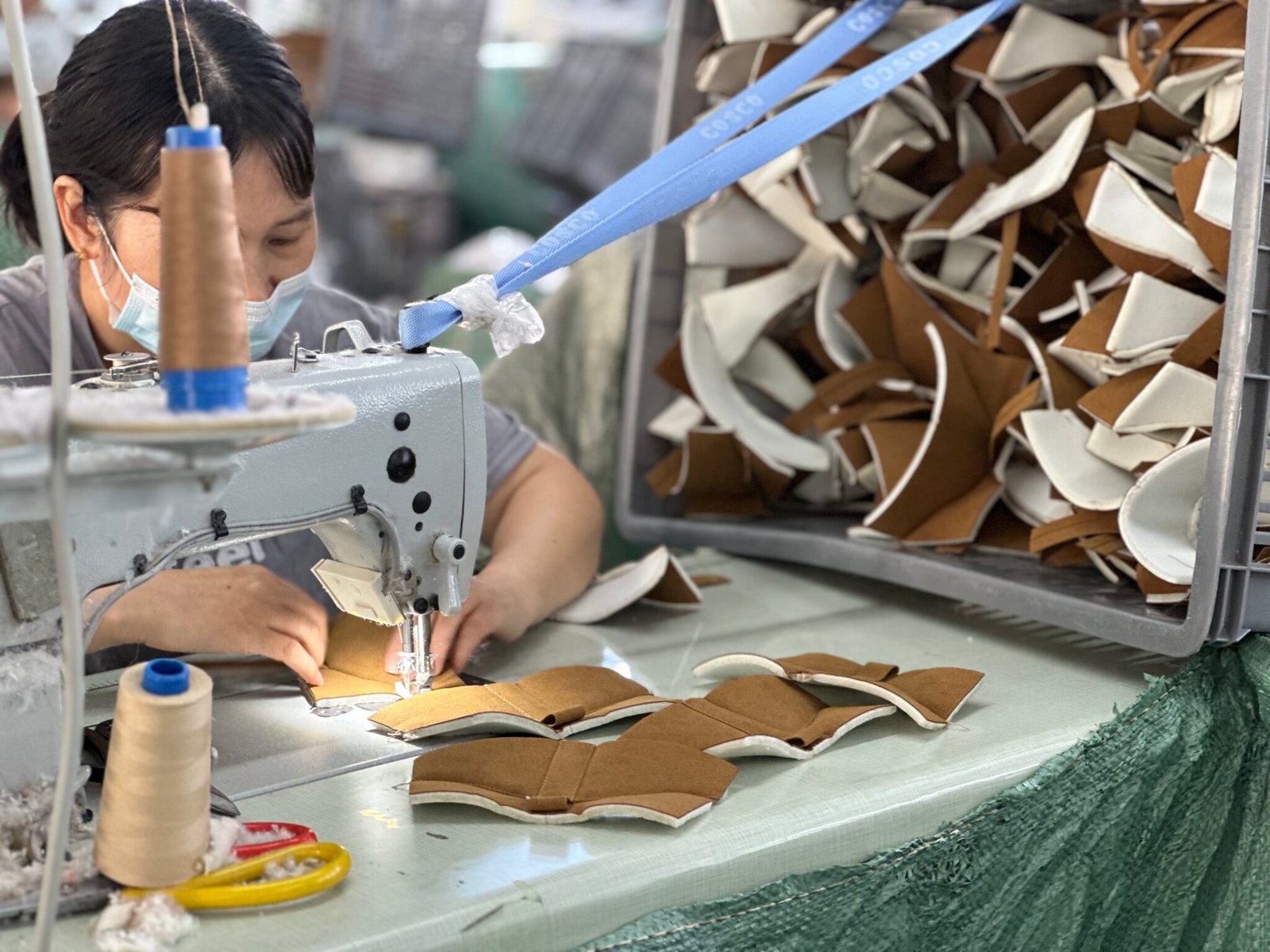The global slipper market has seen tremendous growth in recent years due to the increased demand for comfort, fashion trends, and changing customer preferences. For B2B buyers, choosing a slipper manufacturer is not just about getting the cheapest price. It’s about quality, production capacity, customization capabilities, logistics, and the potential for a long-term partnership. In this blog, we’ll cover everything you need to know to make an educated decision when choosing a slipper manufacturer for your business.

1. Understanding Your Requirements
Before you start talking to any manufacturer, you need to know what you want. Here are a few things to consider:
Product Type
What kind of slippers do you want to source? There are many different types of slippers on the market. You can get indoor slippers, spa slippers, open-toe sandals, flip-flops, house shoes, and more. The material (cotton, leather, synthetic, etc.) and the design will also affect your search for a manufacturer.

Order Volume
How many slippers do you want to buy? You need to know your expected order volume. Some manufacturers specialize in small orders, while others are set up to handle large-scale production.
Customization Needs
Are you looking for branded, custom designs? If so, you need a manufacturer with design and customization capabilities.
Target Price Point
Understanding your target market and what you’re willing to pay is important to know before you start talking to manufacturers.
2. Factors to Consider When Selecting a Slipper Manufacturer
When choosing a slipper manufacturer, there are several key factors that can significantly impact your decision. Each of these factors contributes to a long-term, successful partnership.
a. Production Capacity

For B2B buyers, production capacity is one of the most important factors to consider. You need to make sure the manufacturer can handle your volume, especially if you’re placing large orders. Also, find out if they can scale production based on seasonal demand or your future growth. Ask the manufacturer:
- Production lead times
- Maximum order capacity
- Capability to handle urgent orders or spikes in demand
- Inventory management systems
b. Quality Control
Quality control is a big deal when it comes to selecting a slipper manufacturer, especially if your customers are discerning and expect high-quality products. The quality of the final product, from the materials used to the craftsmanship, will impact your brand’s reputation.

- Material Quality: Ask about the materials they use (EVA, rubber, PU leather, natural fabrics, etc.) and where they source them. Better materials will make more comfortable and durable slippers, which will lead to fewer returns and happier customers.
- Certification and Standards:Make sure the manufacturer adheres to industry standards and has the appropriate certifications such as ISO, BSCI (Business Social Compliance Initiative), or others specific to the footwear industry.
- Testing and Inspection:Do they do inspections at different stages of production? Ask about their quality control processes and ask for samples of their products to see the quality for yourself.
c. Customization Options
If you’re looking to create your own brand or line of slippers, the ability to customize products is a big deal. Customization capabilities can include:
- Design: :Can they create unique designs that match your brand?
- Branding: Do they offer options for branding like logo embroidery, printing, or embossing?
- Color Options: Can they provide a wide variety of colors and materials to meet your specific needs?

- Packaging: If you need branded or eco-friendly packaging, can they do that for you?
d. Pricing and Payment Terms
Price is always a factor, but you need to balance it with other things like quality, delivery timelines, and reliability. When you’re comparing manufacturers, ask them for a detailed quote that includes:
- Material costs
- Labor costs
- Shipping costs (if the manufacturer is overseas)
- Additional costs for customization or packaging
Payment terms are also important. Some manufacturers require you to pay upfront, while others may offer payment plans or credit terms. You need to negotiate terms that work with your company’s cash flow.
e. Location and Logistics

Where the manufacturer is located is a big deal when it comes to logistics, shipping costs, and lead times. If you’re in Europe or the US, for example, sourcing from a manufacturer in China may be cheaper, but it will take longer to get your slippers because of the longer shipping routes.
Consider the following:
- Shipping times and costs
- Import duties and tariffs
- Proximity to key markets
- Ability to handle international shipping and customs clearance
f. Reputation and Experience
The manufacturer’s reputation and experience in the slipper industry can tell you a lot about how dependable they are. When you’re looking for a supplier, you want to check out their:
- Industry Expertise: How long have they been in the business? Do they know how to make the kind of slippers you need?
- References and Reviews: Ask for references from other people who have bought slippers from them. Look for online reviews and testimonials. But don’t forget to ask your industry connections for their opinions.
- Partnerships and Clients: Do they have any big-name partnerships that can tell you they do good work and are reliable?
3. Understanding the Manufacturing Process
For B2B buyers, it’s important to have a basic understanding of the manufacturing process, especially if you’re going to ask for custom designs. Here’s a quick overview of the typical slipper manufacturing process:
- Designing: The manufacturer will either work with your design team or they’ll have their own designers who will create prototypes of your slippers. These designs will include everything from the shape, materials, and color, to your branding.

- Sourcing Materials: The manufacturer will typically source the materials based on your specifications. For example, you might want eco-friendly options, specific fabrics or soles. Ask them about their sourcing partners and whether they have eco-friendly materials available.
- Cutting & Stitching: Once the materials arrive, they will be cut to your design specifications. The stitching will be done with care to make sure it holds up.

- Assembly: This is where the upper part of the slipper is assembled with the sole. Depending on the design of your slipper, this could involve sewing or using adhesives.
- Quality Control & Packaging: After the slippers are assembled, they will go through quality checks to make sure they meet your standards. Then, the slippers will be packaged and prepared for shipment.
4. Negotiating a Contract and Long-Term Partnership
Once you’ve found a manufacturer that you think is a good fit, it’s time to negotiate a contract. A good contract should cover the following:
- Production Schedule: Production Schedule: When do you want the product made and delivered?
- Quality Expectations: What are your quality standards? What is an acceptable defect rate? What is your return policy?
- Payment Terms: When do you pay? What are the terms for credit or delayed payment?

- Shipping and Logistics: Who is responsible for shipping and handling? Who pays for it? What are the incoterms (FOB, CIF, etc.)?
- Intellectual Property:If you’re providing designs or branding materials, make sure your intellectual property is protected in the agreement.
- Termination Clauses:What are the conditions for terminating the contract if the manufacturer doesn’t meet your quality or delivery expectations?
5. Sustainability and Ethical Considerations

More and more businesses are looking for sustainable and ethical manufacturing partners. If you want to find a manufacturer who is sustainable, look for manufacturers who:
- Use eco-friendly materials
- Have sustainable practices (e.g., they don’t waste a lot of stuff or they have energy-efficient processes).
- Have fair labor practices and certifications like Fair Trade or BSCI.
Sustainable practices can help you reduce your environmental impact, attract people who care about the environment, and help you build your brand.
Conclusion
Choosing the right slipper manufacturer is critical for B2B buyers who want a reliable supplier that provides quality products, competitive pricing, and great service. By considering factors like production capacity, quality control, customization options, and logistics, you can find a manufacturer that works for you. When you find the right manufacturer, you can build a strong relationship that will help you maintain consistent product quality and grow your business for years to come.


